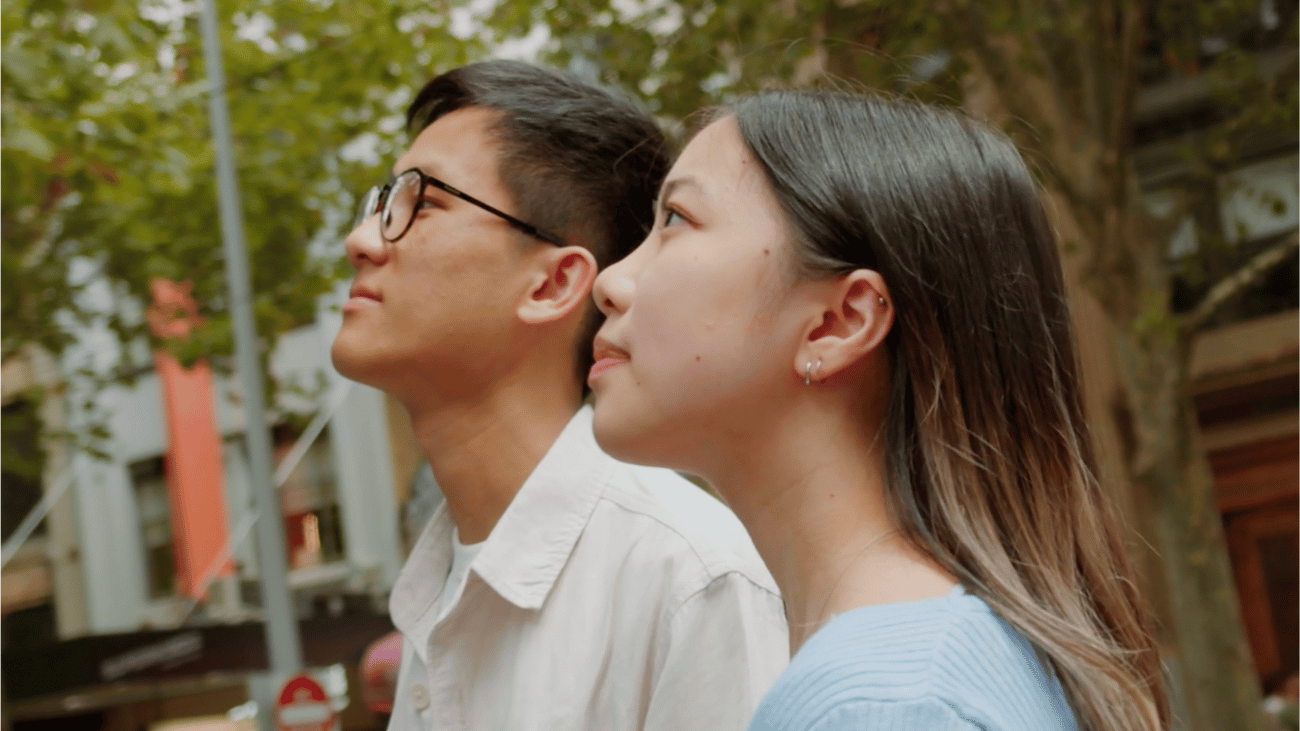
Roni Mazumdar is a culinary trailblazer. The mastermind behind popular NYC restaurant, Masalawala & Sons, Roni is ready to disrupt your idea of what Indian food really looks like. Largely impacted by colonialism, the richness and diversity of Indian food has never been accurately represented in the West. Roni is changing that. Together with Chef Chintan Pandya, Roni co-founded Unapologetic Foods, a visionary restaurant group in NYC that boldly offers unapologetic Indian cuisine. The duo present authentic Indian dishes from lesser-known regions, shedding light on unexplored Indian culinary traditions. While making waves in the NYC food scene, Roni Mazumdar never forgets his roots. His first restaurant, Masalawala & Sons in NYC is an ode to his father, Satyen Mazumdar, and the cherished dishes of his childhood.

There is a Sifu hidden in the hills of Monterey Park who remains a true guardian of tradition and community 🥋🌟 He dedicates his time to training the next generation of martial artists, teaching kids not only self-defense but also the rich cultural heritage that comes with it. As the community has grappled with change, triumph and tragedy, this community of mostly kids holds on to a ritual and practice that keeps the diasporic community connected to their ancestry and home countries. What’s more? The classes are free in an effort to keep as many people practicing as possible.

Subtle Asian Traits isn’t just a Facebook group– it’s a growing community where Asians from around the world feel like there’s a place for them. Whether you’re Simu Liu, Hasan Minhaj or any other of the group’s nearly 2 million members, here, you'll discover the most niche memes about the little aspects of Asian culture – and the Asian diaspora in particular – that are often overlooked. Like the tradition of removing shoes when entering a house or the experience of always having your name mispronounced at Starbucks. And the reason why the group is so successful? Humor. Lighthearted and fun, the space binds thousands of people together through what is common and funny to them. But that doesn’t come without its challenges. When moderating such a large group, the group’s nine founders – Chinese-Australian students from Melbourne – have run into a few problems. “Why are you only representing Chinese culture?” “You need to speak out about more issues.” “Asians are not a monolith.” Despite issues of representation, co-founders Kathleen and Tony are trying their best to honor all identities. They strive to make sure the members have a good relationship with the group, that it’s a welcoming space for all and somewhere people are not afraid to be who they really are.

Indo-Chinese is one of India’s most popular foods, though most people haven’t heard of it–including Chinese people. Why did Chinese food become so popular in India and what does it tell us about the history of these two regions? Today, this collaborative cuisine is taking over the world. Did you know that Chicken Manchurian isn’t Chinese? Nelson Wang, a third-generation Chinese immigrant in India, created the dish in 1975 while working at Mumbai’s Cricket Club. But Chinese food in India dates way further back than the 70’s. The oldest restaurant opened in 1925, and was frequented by many Bollywood stars. Chinese immigration to India dates way back to the 18th century, when many Chinese workers filled industries from sugar-mills to leather and carpentry. To cater to them, eateries began opening that would replace native Asian ingredients with Indian cooking staples. Further, Chinese men began marrying Indian women, making the union of these two cuisines even more tangible. Now found around the world, here’s the history of Indo-Chinese cuisine.

Biryani, one of the most beloved dishes in India and Pakistan, is iconic, regal, and dates back 3,000 years. Today, it has become a street food that is affordable and accessible to all–and it’s thanks to a brand that was launched in Karachi in the 1980’s: Shan Masalas. Usually made with meat and cooked in layers of spicy, tangy, and sweet flavors, Biryani is an elaborate rice dish. In the 1980’s, Shan Masala, packaged spice mixes, were launched–modernizing desi cuisine and freeing up many South Asian women’s time. In 2020 alone, Shan Masala made around $85 million USD in revenue. Mentions of Biryani have been found in Tamil poems that date as far back as 200 CE, to 17th century cookbooks from a royal Mughal kitchen. Biryani today represents several millennia of the subcontinent's unique mix of different flavors, techniques and cooking cultures. Though there’s a lot of hype around who invented biryani and who has the best biryani, every region has delicious biryani–and comes with its own story.
.png)
12Pell says they’re the Madison Square Garden of barber shops. What they mean is when certain folk come through New York City, they don’t leave without visiting. The barbershop is always packed, and there’s a few reasons why barbers combine Japanese style precise scissor work with the sharp shaves of Dominican barbershop, layered on top of K hair techniques. They are one of a kind, and their audience of nearly 2 million followers on TikTok and 300,000+ on Instagram has made them some of the most sought after barbers of our generation. Customers book months in advance for a slot, with prices starting at $150+ for a trim. But 12Pell is important not just because of the popularity. . During the COVID-19 pandemic when Chinatown became a 'ghost town', the store rarely got any customers. 12Pell translated this downtime into community-driven initiatives, offering free haircuts when customers spent $45 dollars at any Chinatown store, and investing in their TikTok community. Soon, 12Pell had things up and running again for the entire neighborhood, including themselves. The barbershop cares beyond just the business of hair – they show up for the Asian American community by creating a space for young Asian men to feel a sense of belonging.